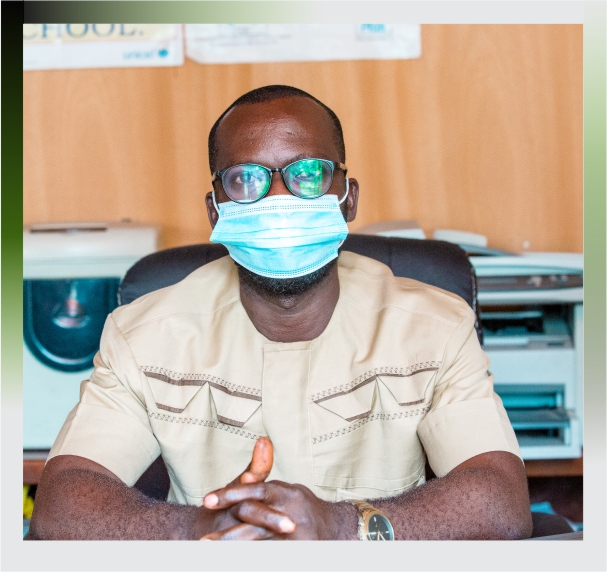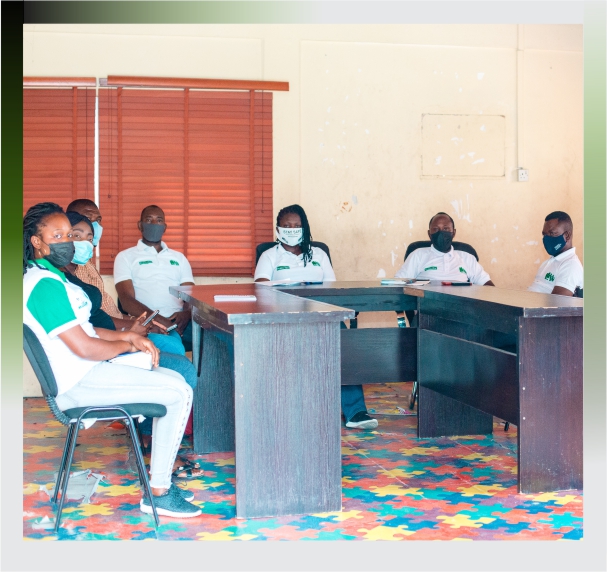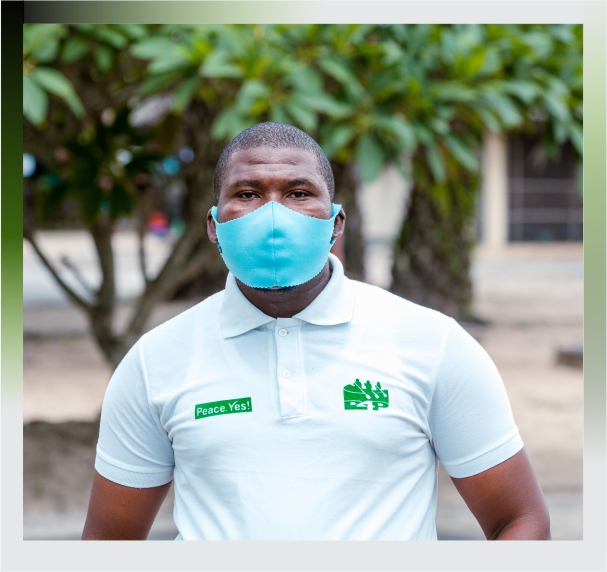

Summary of Outcomes in 2020
702
3,053
211
147
SOCIAL CAPITAL, CONFLICT EWER FOR SUSTAINED PEACE
The peacebuilding program aims to strengthen conflict management systems and capacities for enabling peace and economic growth, PIND targets the active engagement of thousands of peace actors in peacebuilding interventions to mitigate and reduce conflict to the benefit of millions (SDG 16).
May 25, 2021 - 9:35 am
p
7.00 B
v.1.7 (stable)
May 25, 2021 - 9:35 am
p
9.00 B
v.1.7 (stable)
A NEUTRAL NAME AND PEACE RETURNS
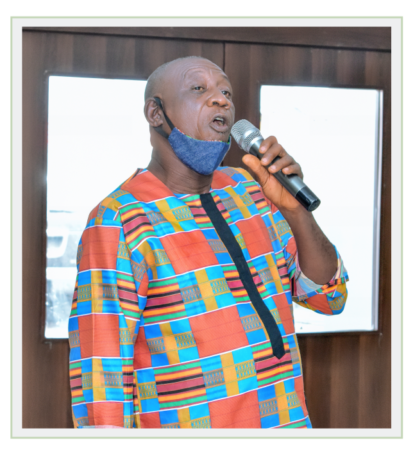
“My name is Dr. Jeffery Wilkie, the co-chairman of the Warri Multi-Stakeholder Platform (MSP). So far, through the Warri MSP (which is a brainchild of PIND), we have been able to get experience and build capacity in conflict management—which we applied in circumstances that unfolded between the Ijaw and the Itsekiri in the three (3) Warri local government areas of Delta State (Warri North, Warri South, and Warri South-West) over the naming of the location where a new oil facility sited on a boundary land owned by the two (2) ethnic groups. We got to a point when we needed to change the name of the location of a drilling facility from Gbokoda West to a neutral name. Today, the name Gbokoda West has been changed to Saturn-1, which is neutral and very acceptable to the Itsekiri and the Ijaw. And the job is going on well. The Ijaw are employed, and so are the Itsekiri. And they are living in peace. Unlike before, when such an issue would have easily led to a crisis, and people would start killing each other. We have been able to move from that old pattern to living together.”
Over ten (10) years, PIND’s peacebuilding program concentrated on establishing, equipping, and expanding the Partners for Peace (P4P) Network as a grassroots platform for mitigating conflict in the Niger Delta. The P4P Network grew to a membership of over 10,000 self-identified agents of peace with sub-chapters in 119 local government areas (LGAs) out of 185 LGAs in the region by the end of 2019.
Launching out a new 2020 to 2024 strategic (third) phase, the focus has shifted from expanding the P4P Network to deepening the peacebuilding capacities and actions of the facilitated members of the P4P Network to foster a more enabling environment for sustainable broad-based economic development—a move from several peace actors to the quality and quantity of actual peacebuilding actions undertaken.
Resolving conflicts constructively without resorting to violence is a skill. Hence, in 2020, PIND built the competencies of 211 peace actors in conflict early warning, mediation, and evidence-based advocacy and engagements through virtual training workshops and follow-on practice-based mentoring sessions. With a targeted aim to increase conflict EWER (early warning and early response) in Chevron’s Global Memorandum of Understanding (GMoU) communities, 100 community persons were trained as conflict monitors in the Egbema and Gbaramatu communities. They were given the competency to report conflict incidences to the peace committee of their Regional Development Committee (RDC) for timely intervention.
All through 2020, members of the Warri MSP, a forum facilitated and trained by PIND from 2018 – 2020 to help stem the tide of violent ethnic conflict and promote peaceful co-existence among the Ijaw and Itsekiri tribes in three (3) local government areas of Delta State, continued to design and implement interventions targeted at conflict-prevention and de-escalation, with small grants, virtual technical guidance, and socially distanced/small sized capacity building on conflict management from PIND.
The Warri MSP undertook a ten-week (10-week) media sensitization and awareness campaign plus informal dialogues and facilitations with key stakeholders to forestall an age-old local government elections violence in the State by influencing the two (2) ethnic groups to shun violence and embrace dialogue ahead of an upcoming election, that contributed to the election of the first Ijaw local government chairman since the creation of the local government areas in 1997. This development fostered peace and equity. The Warri MSP further deployed conflict analysis and stakeholder engagements to resolve a brewing conflict between the Ijaw, Urhobo, and Itsekiri communities in Warri—stirred by an unpopular leadership team choice for the Ogbe-Ijoh local market by the local government chairman.
Well-adapted to local conditions, in touch with communities, equipped with good connections to the local political elites and influencers and using the skills acquired from the training, mentoring, and technical support, the activated peace actors, including members of the Warri MSP, are creating critically relevant domestic social capital and ownership of the peacebuilding process. For peaceful conflict resolution, the over 700 trained peace actors promoted peace, prevented violent conflicts, and tackled 147 existing conflicts through alternative dispute resolution mechanisms and long-term grassroots-based mechanisms.
SKILLED PEACE CHAMPIONS
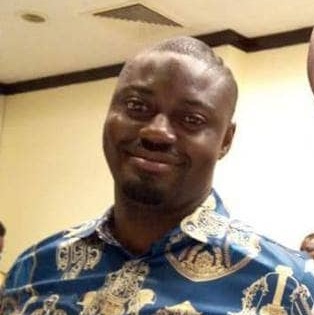
Amamogiran Francis, a peace actor in Dodo River Regional Development Committee in Bayelsa State
After participating in PIND’s training on EWER (early warning and early response), Amamogiran set up an early response subgroup in the five (5) communities that his organization works with Amatu 1, Amatu 2, Bilabiri 1, Bilabiri 2, Bisangbene in Ekeremor LCA of Bayelsa State. The subgroups make use of the EWER system to get timely information and mitigate conflict quickly before it escalates. This has greatly helped in reducing conflict incidences in those communities.

Tamunomie Wariboko, a peace actor from Okirika in River State
“During training by the P4P [Network], I was taught how to use various methods to address conflicts in my communities. When I became the CSO, I tried to use force to end the conflicts, but it was not working. Then, I introduced a football competition. I give a little token to the first, second, and third winning teams. And after that, I will gather both winners and losers back to the community and tell them that, “You are one (1), both winners and losers.” I teach them how to be together, be their brother’s keepers. And they go home very happy.”
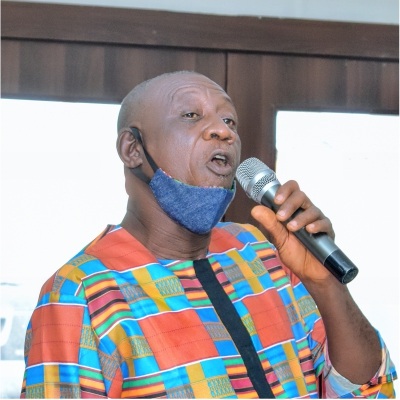
Chief Mike Odeli, member of the Warri MSP in Delta State
“One (1) important thing I learnt from the MSP training is to keep the situation from getting even worse and preventing it from ultimately escalating into a violent crisis. […] Since then, I offer my support anywhere I can. As a member of the Warri MSP, I was able to apply the skills acquired from the MSP training to douse tensions between Okere-Urhobo and Okere-Itsekiri communities [in Warri, Delta State]. I brought the stakeholders together to address the issue and focus on dialogue. Luckily, I was able to douse the tensions and get them to a place of agreement.”

Rebecca Sunday, a peace actor from Umuahia, Abia State
‘’They [conflicts] reflect differences in values, clashes of interests, and the ensuing tensions between the various, different groupings. It is not the conflicts per se that is the problem, but the manner in which they are resolved…I didn’t know anything about conflict management. But ever since I started attending the P4P [Network] trainings, I now step up to get involved in conflict situations. In my community— Ossah, Umuahia North LGA, Abia State—there was a boundary dispute, and with the knowledge acquired from the P4P [Network] training on conflict management, I mitigated this conflict.”
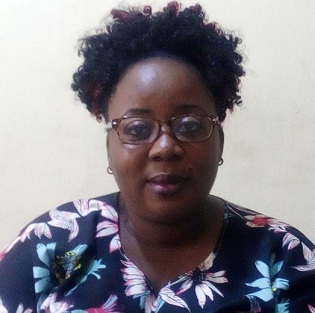
Jennifer Ezekwem, a peace actor in Imo State
‘’ With strong field work experience garnered over the years as a member of the Conflict Prevent Committee of the Partners for Peace in the Niger Delta (P4P) Imo State Chapter and the Oguta LGA sub-chapter, I have navigated the nooks and crannies communities, building community and family peace and resolving conflicts across Imo State and some Niger Delta states’’
PIND’s new 2020–2024 strategic phase focused on providing critical data and analysis for peacebuilding and conflict management through the Integrated Peace and Development Unit (IPDU). PIND continued gathering and triangulating data from numerous credible sources on conflict hotspots and trends unto its Peace Map and developed year-long weekly, quarterly, and annual Niger Delta Conflict reports used by peace, security, and development actors and governments (and other public and private sector stakeholders) to conduct conflict assessments and make informed decisions and take actions to address emerging conflicts and plan interventions.
By the end of 2020, PIND had coded, formatted, and uploaded 20,324 conflict-related incidents in the Niger Delta to the Peace Map, retaining its position as the most comprehensive, publicly available dataset on conflict risks in Nigeria. A total of 3,053 stakeholders utilized these data products from PIND for various purposes in 2020, with users emailing to trackers@pindfoundation.org to subscribe for the updates.
PIND remains grateful to the organizations whose conflict data sources are currently integrated into the Peace Map: West Africa Network for Peacebuilding (WANEP), Fund for Peace (FFP)’s UNLocK, Transition Monitoring Group (TMG)’s Quick Count of the NEEWS2015 (Nigerian Election Early Warning System), Nigeria Stability and Reconciliation Programme (NSRP), Council of Foreign Relations (CFR), Nigeria Watch, Armed Conflict Location and Event Data (ACLED), and Community Initiative for Enhanced Peace and Development (CIEPD).
In a 2020 PIND case study titled ‘Partners for Peace in the Niger Delta – A Platform for Collective Action in Conflict-Prone Region,’ we noted that ‘’although the P4P Network is made up of volunteers, conflict mitigation and peacebuilding activities, whether small or big, need funds to implement’’ (p.20). Seeking a more robust integration between our peacebuilding and economic development programs during the second 2015–2019 strategic phase, the P4P Network started teaching the members about economic development and deliberately sought out and linked their members to economic opportunities, incorporating capacity building on resource mobilization into the peacebuilding training courses and packages and including peace actors in the market development trainings for service providers.
Likewise, PIND began exposing market systems service providers to conflict sensitivity, management, and prevention skills building through the P4P Network. This peace-economic integration remains a key fundamental in the new phase as in 2020; some of the service providers partook in the training of conflict monitors in the Global Memorandum of Understanding (GMoU) community while peace actors were supported to connect to economic opportunities.
TEACH ME TO FISH SO THAT I CAN KEEP PEACE – ENWEREM CORLIVICS
 “I am Enwerem Corlivics, the Imo State coordinator for [the] P4P [Network] in the Niger Delta. The PIND trainings that I have attended, particularly resource mobilization, have impacted much on my business and livelihood.
“I am Enwerem Corlivics, the Imo State coordinator for [the] P4P [Network] in the Niger Delta. The PIND trainings that I have attended, particularly resource mobilization, have impacted much on my business and livelihood.
Though I had been in the business before partaking in PIND’s project, the trainings they had, especially in Port-Harcourt and in Warri in 2018 to 2019 (visioning and marketing training) and other areas, are very fundamental and important to any business enterprise because they actually expose you to new practices in how business should be done.
After you have attended PIND’s trainings, especially on resource mobilization, you begin to understand that no matter the little thing you want to do—if you run it as a business or as an enterprise—it will grow to any extent if you put down the fundamental things that are necessary, things that are important that can motivate business development. And as the Imo State Coordinator for [the] P4P [Network], we attended a lot of training with PIND that is also helping us in peacekeeping or peace advocacy in some other communities. We, even later, got some funding from PIND, about NGN 1 million, which we used in training some people on aquaculture. And the thing is still going on.
I established a beekeeping and honey production business in 2007 through a fund we got from a cooperative that is being sponsored by FADAMA projects. There is a saying: “Teach me how to fish, and don’t give me fish because I can’t lack fish.” Now, I have not less than 100 beehives scattered in different farms, and from last season’s harvest, I had almost 500 to 1,000 liters of honey, and, right now, I am doing another harvest on honey production.
The PIND training that we have had has so much impact on my business—particularly in terms of expansion, value addition, packaging, promoting honey production, and training people so that they can really be in that business. Formerly, I was living in the village; but through my business in beekeeping and honey production, I have been able to pay my rent in Owerri. I have relocated my family, and my children are going to private schools in Owerri as well. I depend much now on my business.
I have bought lands through the money I got from there for the expansion of the business. I have bought a honey-processing machine and changed some of my bee keeps. I have a smoker and other PPE used in the harvesting and processing of beeswax and honey. Then, I am having some shops where my honey is being sold. So that if you want my honey, you go there and buy it. Formerly, it was only myself and one (1) other person, but now I have up to ten (10) people that are working with me.
Even when we go for P4P [Network] trainings or activities, even the annual general meetings or some other meetings, I go with my product, I advertise it there. You know, I see it as a source you can use to keep the youth busy because when the youth are busy with other activities, they cannot be thinking of crime. Idleness causes certain things, but when people are busy with their livelihood making some fortune, some money, attention will be diverted to other things, so the training (on bee and honey production) is actually beneficial.”


